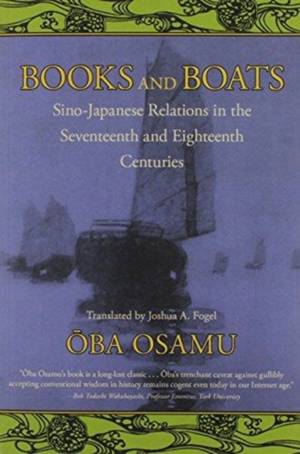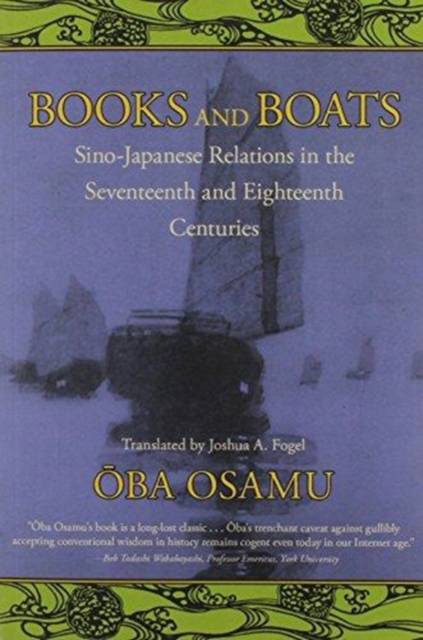
- Afhalen na 1 uur in een winkel met voorraad
- Gratis thuislevering in België vanaf € 30
- Ruim aanbod met 7 miljoen producten
- Afhalen na 1 uur in een winkel met voorraad
- Gratis thuislevering in België vanaf € 30
- Ruim aanbod met 7 miljoen producten
Books and Boats
Sino-Japanese Relations and Cultural Transmission in the Seventeenth and Eighteenth Centuries
Oba OsamuOmschrijving
This volume looks in detail at trade between the Qing dynasty and the Edo shogunate primarily in the seventeenth and eighteenth centuries. While touching on all manner of items traded, from where, to where, and the like, Oba Osamu particularly focuses on the importation of Chinese books to Japan. This entails a detailed discussion and analysis of the censorship procedures for detecting works with any sort of Christian content--strictly forbidden--and the punishments meted out to the guilty importers. Ōba also looks at the families responsible for inspecting books--it became a hereditary post--and the Chinese interpreters attached to the Nagasaki Magistrates office.
According to Professor Fogel, "[Oba] . . . asks: How did Japanese of the late-Tokugawa and early-Meiji eras learn about the West? In fact, with certain exceptions, their major texts on Western affairs were classical Chinese texts (Kanbun), often translations of Western books made by European missionaries together with their Qing collaborators. Oba's attention to this central importance of classical Chinese texts was the crowning achievement of his career, and it has earned him extraordinary praise from both Japanese and Chinese historians."Specificaties
Betrokkenen
- Auteur(s):
- Uitgeverij:
Inhoud
- Aantal bladzijden:
- 200
- Taal:
- Engels
Eigenschappen
- Productcode (EAN):
- 9781937385125
- Verschijningsdatum:
- 31/03/2012
- Uitvoering:
- Paperback
- Formaat:
- Trade paperback (VS)
- Afmetingen:
- 152 mm x 229 mm
- Gewicht:
- 544 g

Alleen bij Standaard Boekhandel
Beoordelingen
We publiceren alleen reviews die voldoen aan de voorwaarden voor reviews. Bekijk onze voorwaarden voor reviews.











